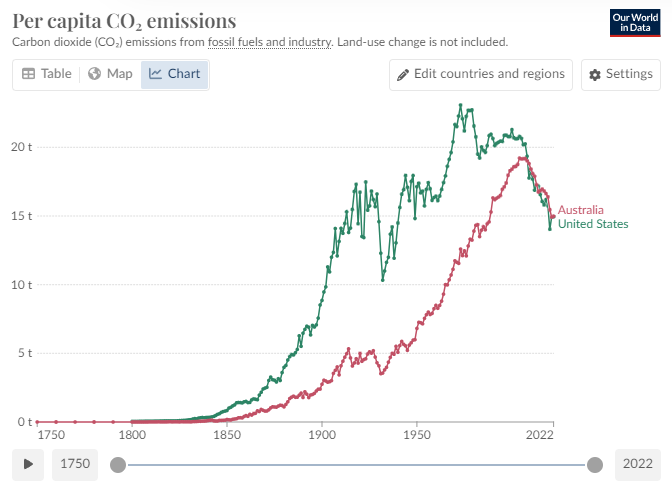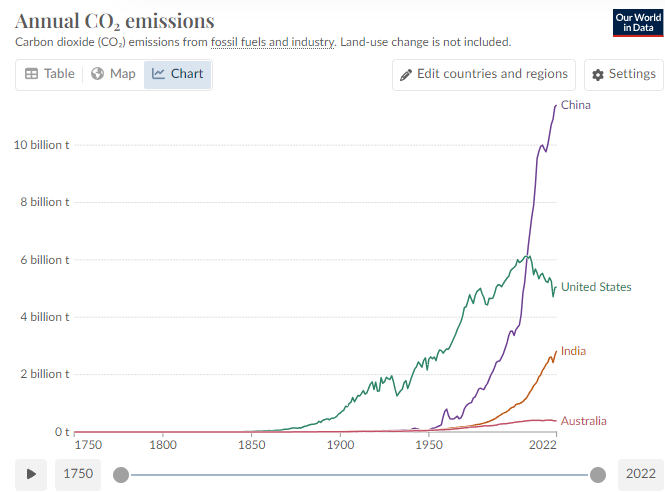A little knowledge is dangerous thing. Was there ever a truer word spoken about my natural political party, the Greens.
I have spent my entire adult life fighting climate change, writing and publishing about it since the 1990s.
Yet, not only can I not vote Green, I hope nobody does, because they are actually worse for the environment than any other political party!
This is not a phenomenon of a post-truth world. It is a symptom of a post-intelligence world led by the very people claiming to have higher intellect!
It shakes my very faith in the species.
It’s not like it’s even especially complicated. We are talking about basic economic arithmetic shoved aside in pursuit of double-dealing personal virtue:
It’s a political strategy aimed at attracting disaffected younger voters who, especially during a cost-of-living crunch, appear to be fed up with the mainstream parties.
The approach is not without risk. In chasing a broader slice of the electorate, the Greens have put themselves into a position to challenge in more lower house seats. With support for Labor ebbing, the Greens could hold the balance of power after the next election. That reality will bring more rigorous analysis of their policies.
Plans to scrap negative gearing and impose higher taxes on large superannuation balances might win broad support among the young. But will voters be persuaded by a 2 per cent cap on rent rises when presented with evidence that it doesn’t work?
Will those being courted on cost of living vote for a party whose plan to hit net zero by 2035 or sooner is likely to push power prices up further? When faced with a choice between policy purity and their hip pocket, will the logical dissonance of killing the coal and gas industries and making life more affordable be too much for voters?
Everybody should run a goddamned mile from these policies. Killing gas along with coal is certifiably insane.
The US outperformed Australia on emissions reduction purely through coal-to-gas switching, despite a much more hostile public toward the idea:

Gas exports also play a vital role in getting Asia off yet more coal. Asia needs gas as a transitional fuel more than we do!

Being anti-gas is a Green gimmick.
In fact, gimmickry defines all of its policymaking:
- Rent caps will create a thriving black market for accommodation, suppress construction even further and catapult rents higher the moment they roll off.
- I would normally support reform for property taxes but right now, doing so will only suppress housing supply all the more, shifting the adjustment to renters.
- Worse, the Greens want to raise immigration even more to pump prime rent demand.
- Worst of all, the Greens anti-gas extremism guarantees hyper-inflation in Australian building materials, which are very energy-intensive manufactures, guaranteeing a massive private construction bust just as they stoke supply.
In short, the Greens’ gas, housing and tax campaigns will create a homeless dystopia akin to Manila, where three million people live on the streets.
Not to mention, the calamitously higher population that the Greens bizarrely want will turn what’s left of Australia’s ecology into an endless Blade Runner set.
These are not my speculations. They are the direct consequences of modelling the Greens’ policy positions.
Which begs the question. Do they have absolutely no idea what they are doing? Or are they even more evil than the major parties, pretending to virtue signal with one hand while annihilating everything that they purport to stand for with the other?
Either way, if any of these policy gimmicks see the light of day, the public will be so horrified at the results that any legitimate green movement will be wiped out for generations, as has just happened in Europe.
I am desperate to vote green but I’m putting the lunatic unGreens last.

